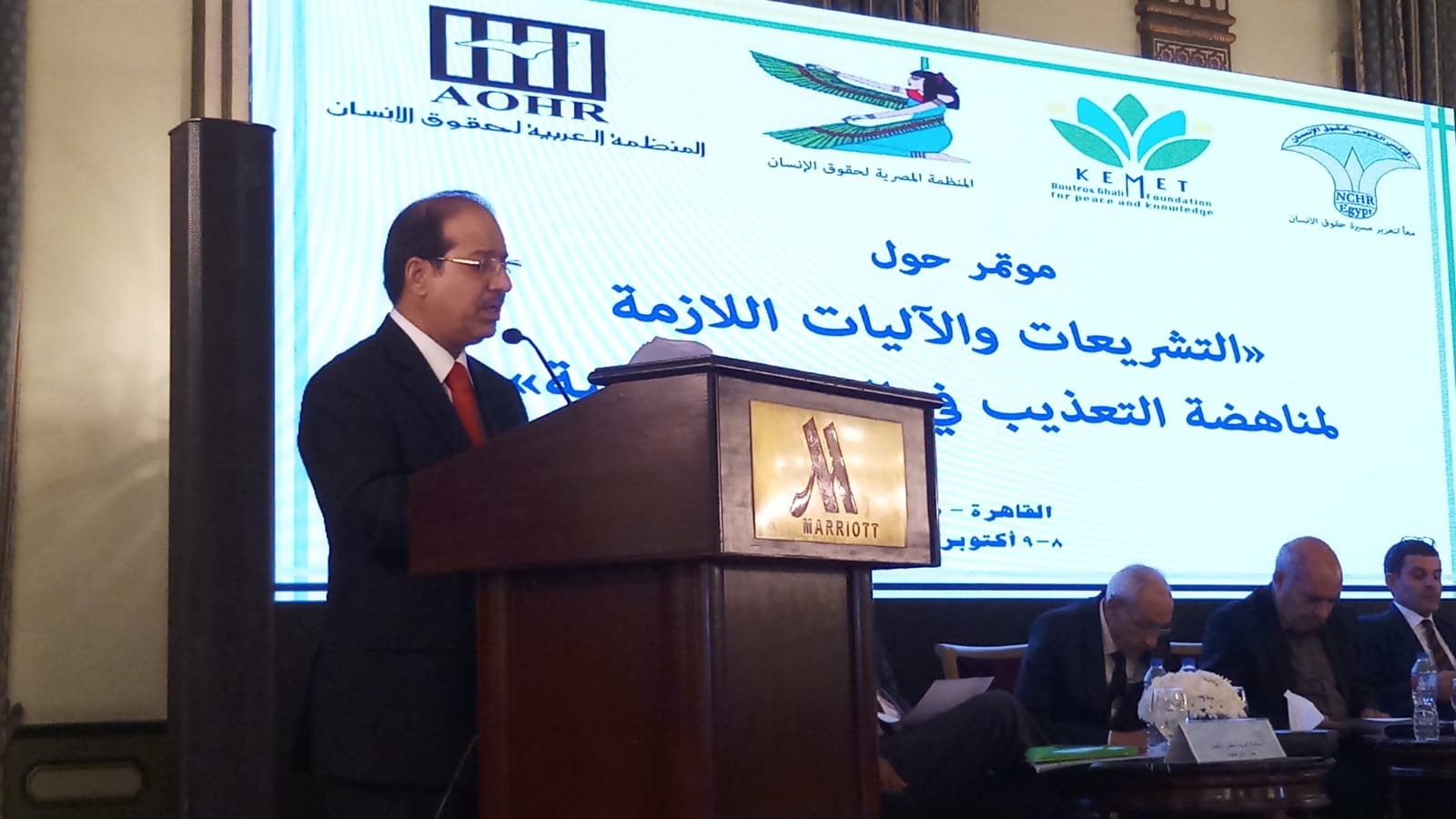NIHR participates in International Conference on “Legislature and Mechanisms to Combat Torture in Arab States” in Cairo

The National Institution for Human Rights, represented by Dr. Malallah Alhammadi, member of the NIHR’s Council of Commissioners, participated in the International Conference on “Legislature and Mechanisms to Combat Torture in Arab States”, organized in partnership between the National Council for Human Rights, the Arab and Egyptian Human Rights Organizations and the Kemet Boutros Ghali Peace and Knowledge Foundation in the Arab Republic of Egypt.
The conference dealt with the most important challenges for combatting torture and maltreatment in the Arab region, where the attendants analyzed the legislative gaps in criminalizing all forms of torture and the mechanism of accountability and ensuring that perpetrators do not go unpunished, considered establishing independent national mechanisms for the prevention of torture in accordance with the Optional Protocol attached to the UN Convention Against Torture, whether for the States that have acceded to the Protocol or those that have not yet done so, and discussed means of redressing victims.
For his part, Dr. Alhammadi spoke during his work paper presented in the Conference about the role of the NIHR in the Kingdom of Bahrain in the area of the promotion and protection of the right to physical and moral integrity, in which he addressed the most important efforts by the NIHR in the promotion and protection of the right to physical and moral integrity as well as future hopes and aspiration towards combating torture and other aspects of maltreatment in the region, calling for concerned efforts to take legislative, administrative and judicial measures to implement the provisions of the relevant conventions.
It is worth mentioning that the Conference was attended by a number of government, legislative and parliamentary bodies, national human rights institutions, civil society organizations concerned with human rights, legal experts from about 18 Arab countries, representatives of the Office of the High Commissioner for Human Rights and UN regional offices and a number of Arab, African and European diplomatic missions in Cairo.


